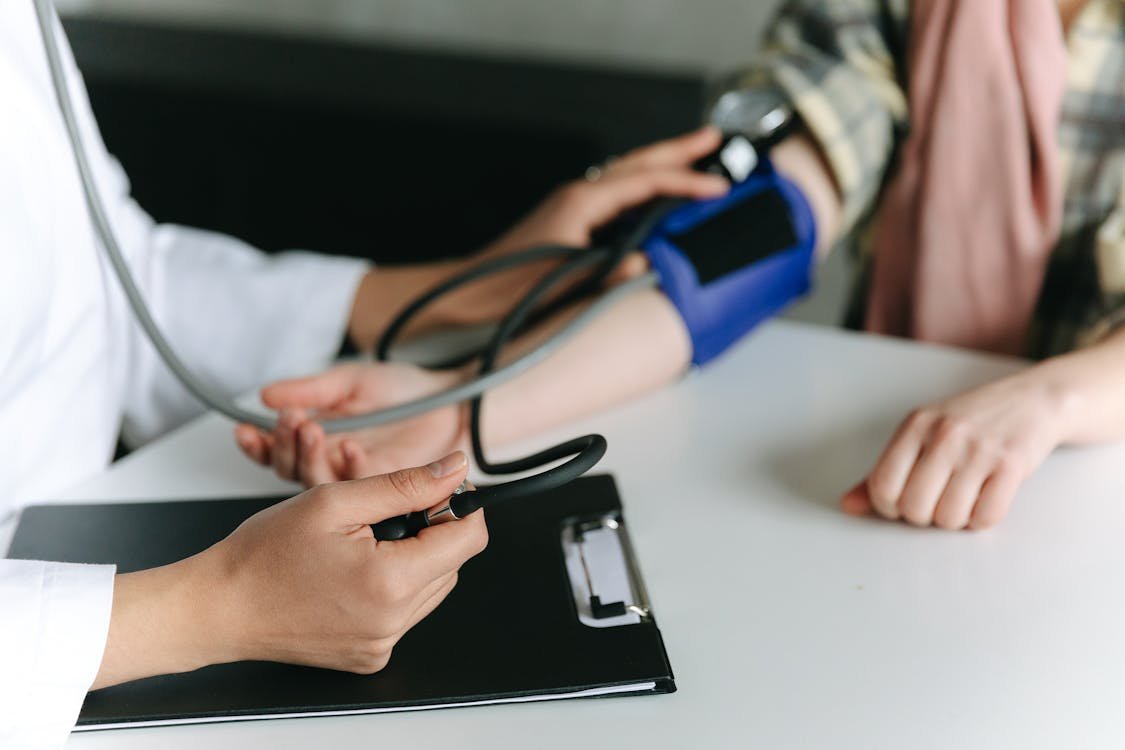Follow us and share.
Complications of Untreated Hypertension: How to Protect Your Heart and Kidneys
High blood pressure is a silent disease that, if not properly controlled, can lead to serious complications affecting multiple organs in the body.

Many people are unaware that high blood pressure can progressively damage the heart, kidneys, brain, and other vital systems. In this article, we'll explore the major complications of untreated hypertension and how you can prevent its devastating effects.
Why is Untreated Hypertension Dangerous?
When blood pressure remains chronically high, the circulatory system is overstressed, causing progressive damage to blood vessels and organs. Over time, this damage can lead to serious and even fatal diseases.
Major complications of uncontrolled hypertension include:
1. Cardiovascular Diseases: The Heart Under Threat
The heart is one of the organs most affected by high blood pressure. The main consequences include:
- Myocardial infarction: High blood pressure encourages the buildup of fatty plaques in the arteries, which can block blood flow and cause a heart attack.
- Heart failure: The heart works harder to pump blood against arterial resistance, which over time can weaken the heart and reduce its ability to function.
- Hypertensive heart diseaseChronic hypertension can cause thickening of the heart muscle, making it difficult for it to pump blood efficiently.
2. Stroke: The Risk to the Brain
High blood pressure can damage blood vessels in the brain, increasing the risk of:
- Stroke (ischemic stroke): It occurs when a clot blocks blood flow to the brain.
- Brain hemorrhage (hemorrhagic stroke): It occurs when a weakened blood vessel ruptures inside the brain.
- Cognitive impairment and vascular dementia: Reduced blood flow to the brain due to high blood pressure can affect memory and thinking ability.
3. Kidney Damage: Chronic Kidney Failure
The kidneys depend on stable blood pressure to properly filter waste from the blood. Prolonged high blood pressure can damage the small blood vessels in the kidneys, which can lead to:
- Hypertensive nephropathy: Progressive reduction in kidney function.
- Chronic kidney failure: The kidneys lose their ability to filter blood, which can lead to the need for dialysis or a kidney transplant.
4. Aneurysms: Arteries in Danger
High blood pressure can weaken artery walls, causing aneurysms to form. If an aneurysm ruptures, it can cause severe internal bleeding and be life-threatening.
5. Vision Problems: Hypertensive Retinopathy
The blood vessels in the eyes can also be affected by high blood pressure, which can cause:
- Blurred vision or partial or total loss of vision.
- Retinal hemorrhages.
- Retinal detachment in severe cases.
How to Prevent Complications of Hypertension
Controlling high blood pressure is key to avoiding these complications. Some key strategies include:
- Monitor blood pressure regularly.
- Adopt a healthy diet low in sodium and rich in potassium, based on fruits, vegetables, and lean proteins.
- Engage in regular physical activity (at least 150 minutes per week).
- Reduce alcohol consumption and avoid tobacco.
- Manage stress with relaxation techniques and adequate rest.
- Take the medications prescribed by your doctor without interruptions.
Protect Your Health: Control Your Blood Pressure
Untreated hypertension can lead to irreversible complications, but with early diagnosis and a healthy lifestyle, it's possible to prevent its effects and maintain a good quality of life. Don't ignore your blood pressure: regular checkups and adopting healthy habits are the best strategies to protect your heart, brain, and kidneys.



